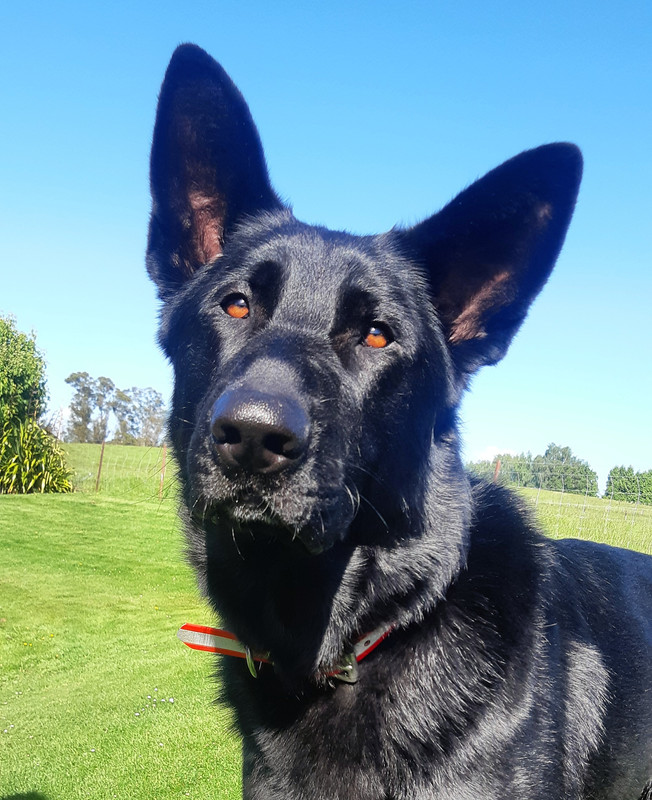Bowel Cancer Clinical Trials
AIM: Working alongside a full scientific and clinical team it is K9 Medical Detection New Zealand's aim to create a simple diagnostic urine test as a value-added tool in the fight against bowel cancer. To help prioritise patients and offer a non-invasive early test for all ages assisting medical professionals in their decision making pathway.
BACKGROUND:
New Zealand has one of the highest rates of bowel cancer in the world. More than 3,200 people are diagnosed with bowel cancer each year and over 1,200 will die from the disease.
Over 350 people under 50 are diagnosed with bowel cancer each year.
It is estimated that one in every 18 New Zealanders will develop bowel cancer in their lifetime.
By detecting bowel cancer early over 90% can be cured.
Being aware of the symptoms is the first step you can take to prevent bowel cancer. Symptoms may come and go so don’t wait if you have any of these concerns, no matter what age you are.
Symptoms may include:
· Bleeding from the bottom (rectal bleeding)
· Change of bowel motions/habits that come and go over several weeks
· Anaemia
· Severe persistent or periodic abdominal pain
· A lump or mass in the abdomen
· Tiredness and loss of weight for no obvious reason
If you have any of these symptoms, or you are concerned about your bowel health, see your GP right away.
For support or more information on the signs and symptoms of bowel cancer, treatment options or educational resources please visit Bowel Cancer NZ www.bowelcancernz.org.nz
GOVERNMENT RUN NATIONAL BOWEL SCREENING PROGRAMME
As of June 2022 all areas of NZ are now covered by the NBSP.
If you are aged between 60 – 74yrs and registered with a GP, you will be invited onto the program in and around your 60th birthday. From July 2023 the screening will be slowly rolled out for Māori and Pasifika from 50 – 74 to help combat inequities. For more information on when you might expect to receive your kit, please head to the Time to Screen website www.timetoscreen.nz/bowel-screening or call 0800 924432
A bowel screening test is for people who do not have any obvious symptoms of the disease. However, bowel cancer can develop without any early warning signs and screening is one of the most effective ways to reduce the risk of dying of bowel cancer. When caught early, over 90% of bowel cancer cases can be treated successfully.
The screening test is called a Faecal Immunochemical Test (FIT) and it checks for blood in your bowel motion, not for bowel cancer itself. The FIT can detect small amounts of blood in your bowel movement (stool), invisible to the naked eye. Blood can leak from pre-cancerous polyps or early stage bowel cancer and pass into bowel movements before any bowel cancer symptoms become apparent.
Any sample that detects blood requires the patient to have a follow up colonoscopy where a camera is used to detect any polyps or cancers within the bowel. This can be very costly and invasive.
If we can find those patients who are more likely to have bowel cancer through early detection from K9 Medical Detection, we can push them to the front of the colonoscopy queue and save more lives.
LOW PARTICIPATION RATES IN NZ
The government's national bowel screening programme has been in operation since its rollout in 2017. The National screening unit expects a low 62% participation rate overall.
Figures obtained from the Ministry of Health’s National Screening Unit, Screening Insights and Analytics Department shows lower than expected participation rates in some DHB’s of only 52% (Counties Manukau DHB - 31st July 2019).
It has been reported that only 50% of Māori and Pasifika communities participate overall and are the group most likely to be diagnosed with bowel cancer before the age of 60.
RESEARCH TRIAL:
K9 Medical Detection NZ has strict protocols and robust methodologies for all canine medical detection training. Research trials are led by Professor Sarah Young, in conjunction with Doctor Michelle McConnell as Research Project Manager; Biostatistician Dr Vanessa Cave; K9MD Director Pauline Blomfield and a full clinical/medical advisory team. K9 Medical Detection NZ have clinical facilities in Dunedin including five laboratories for the safe handling and storing of all medical samples.
In January 2020 K9MD German shepherd Levi commenced training to detect bowel cancer. In December 2020 The University of Otago issued a press release on the results of year one.
https://www.otago.ac.nz/news/news/otago759674.html
K9MD Levi has now completed a blind randomised validation testing 400 samples over 5 consecutive days for the Proof of Concept stage. The results were world leading with a success of 98.4% sensitivity (correctly identifying those with bowel cancer) and 100% success specificity (correctly ignoring those without cancer).
K9MD Weta, another German shepherd has also completed a randomised controlled trial, held over 5 consecutive days testing 300 samples. Her results were 100% specificity success and 100% sensitivity success.
K9MD Hero, a black Labrador has joined the Bowel Cancer Detection Canine Team. Hero has been successfully imprinted on the odour released from Bowel cancer cells and will complete his Proof of Concept validation in 2024.
Ethics approval has been granted along with HRS Locality Authorisation approval and approval from Southern Cross Invercargill and Mercy Hospital Dunedin to collect patient urine samples for our stage two research. Professor Konrad Richter from Southern, Professor Michael Schultz from Otago, and Professor Tim Eglinton from Canterbury all support the research being completed by K9MD. Once associated clinical requirements have been approved for other regions further samples will be collected to ensure no geographical bias. K9MD Levi and K9MD Weta have now commenced the Diagnostic Accuracy stage successfully detecting bowel cancer in patient urine samples. A validation to estimate sensitivity and specificity will be held in 2025.
It is hoped that the findings from this research programme will assist in the development of a new early non-invasive diagnostic test for bowel cancer in New Zealand, subsequently saving many lives.


